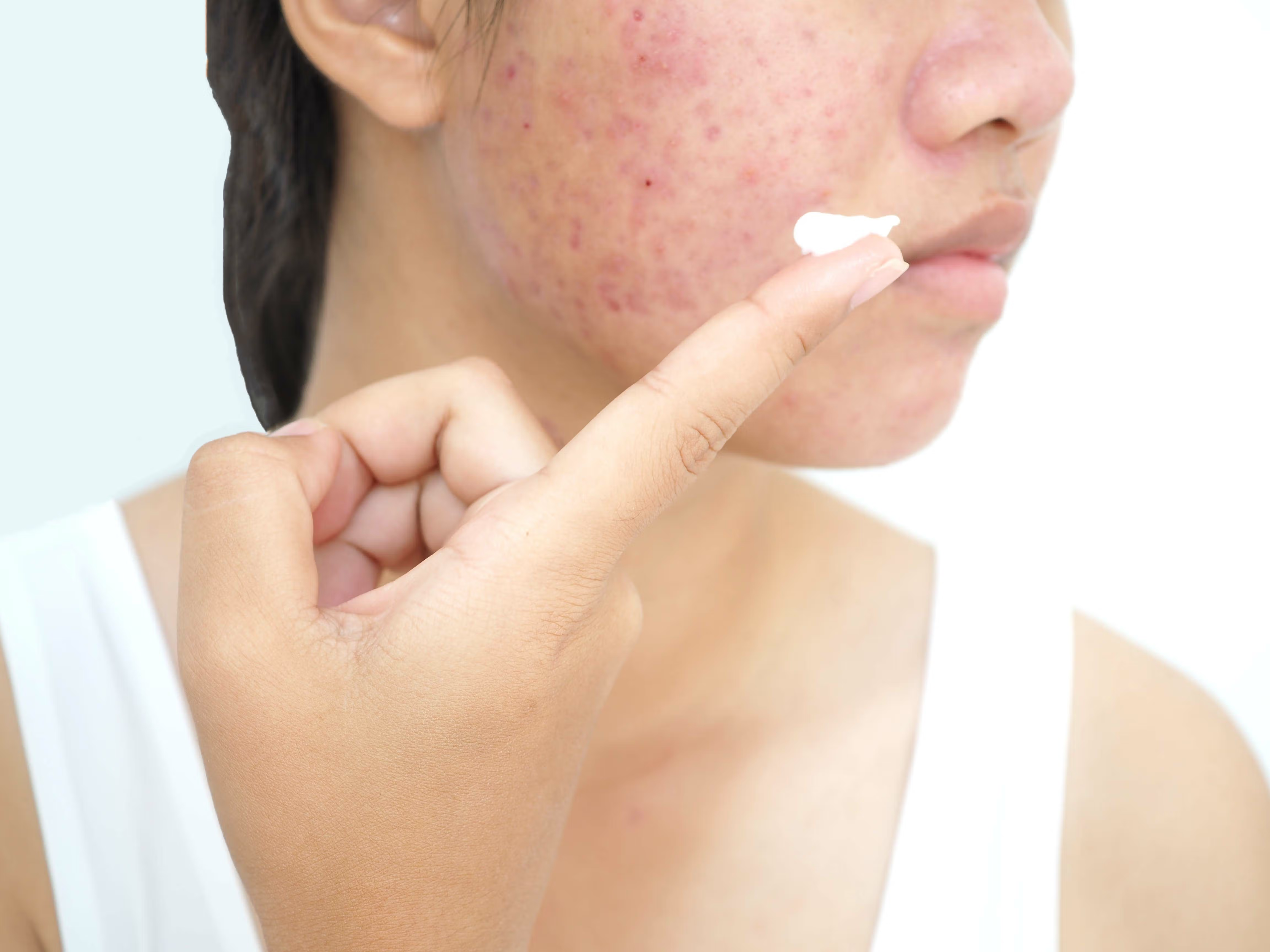- Case-Based Roundtable
- General Dermatology
- Eczema
- Chronic Hand Eczema
- Alopecia
- Aesthetics
- Vitiligo
- COVID-19
- Actinic Keratosis
- Precision Medicine and Biologics
- Rare Disease
- Wound Care
- Rosacea
- Psoriasis
- Psoriatic Arthritis
- Atopic Dermatitis
- Melasma
- NP and PA
- Skin Cancer
- Hidradenitis Suppurativa
- Drug Watch
- Pigmentary Disorders
- Acne
- Pediatric Dermatology
- Practice Management
- Prurigo Nodularis
- Buy-and-Bill
Article
The best and worst of acne treatment options
Author(s):
Poor quality trials make assessing effects of non-pharmacological treatments in acne difficult, but based on the evidence, glycolic acid, amino fruit acid, intense pulsed light and diode laser are the most promising.
While there is a huge demand for non-pharmacological treatment options in acne vulgaris, robust evidence to support their effectiveness and safety is scarce.
Researchers in the Netherlands conducted a systematic review in an attempt to determine which, if any, of the most commonly used non-pharmacological therapies might have the most potential for treating acne.
Use of conventional topical and systemic treatments is not always desirable because of the potential risk of adverse effects, and as acne is one of the most common skin conditions, the widespread use of antibiotics risks driving antimicrobial resistance.
The most commonly used non-pharmacological therapies for acne vulgaris are laser and light-based therapies, chemical peels, microneedling, (micro)dermabrasion and (mechanical) lesion removal, and they are generally used for patients with chronic acne who require long term therapy.
The researchers searched three electronic databases (MEDLINE, Cochrane library, Cinahl) for studies on non-pharmacological therapies for acne vulgaris published between January 2000 and May 2017 and identified 1467. A total of 33 involving 1404 patients met the eligibility criteria to be included in the analysis, all were randomised controlled trials or controlled clinical trials, 10 of which used a control group, placebo or sham treatment. The majority of the studies was executed on participants having mild to moderate acne or inflammatory acne.
The non-pharmacological therapies assessed by the studies were laser and light-based therapies (20 studies, chemical peels (11 studies), and fractional microneedling radiofrequency (two studies) and most the participants had mild to moderate or inflammatory acne.
“The strict application of inclusion and exclusion criteria led to the exclusion of several studies on other frequently applied non-pharmacological therapies, such as (micro)dermabrasion and mechanical lesion removal (mostly due to the absence of a control group). However this strict selection process did lead to better evidence for the remaining studies,” said researcher Femke de Vries, of the HU University of Applied Sciences in Utrecht, The Netherlands.
While a high rate of statistically significant results was found in most of the studies, indicating efficacy of non-pharmacological therapies, she said, “the low methodological quality of the included studies made it difficult to draw clear conclusions.”
Major differences in the methodology and outcome measures of the studies meant a meta-analysis could not be conducted so the researchers undertook a best-evidence synthesis on seven studies which had a high methodologic quality.
Strong evidence was found for the effectiveness of glycolic acid (10-40%). Moderate evidence was found for amino fruit acid (20-60%), intense pulsed light (IPL) (400–700nm and 870 – 1200nm) and the diode laser (1450nm). Initially, conflicting evidence was found for pulsed dye laser (585-595nm).
Fractional microneedling radio frequency (FMRF) was found to be beneficial for in acne in the two randomised controlled trials assessing it but their methodological quality was “suboptimal.”
The most frequently reported side-effects for non-pharmacological therapies were erythema, tolerable pain, oedema and a few cases of hyperpigmentation, which were in most cases mild and transient.
de Vries said: “In general, non-pharmacological therapies are relatively safe to use, in particular compared to the risk of developing antibiotic resistance or adverse effects such as with oral isotretinoin.”
The majority of the included studies were of low methodological quality: only two included more than 100 participants, most involved short follow-up periods, in most the participants and/or performing clinicians were not blinded, and many studies did not properly describe the home use of concomitant products such as sunscreen.
The results of the systematic review showed that there were “circumstantial evidence for non-pharmacological therapies in the treatment of acne vulgaris,” the researchers said, which highlighted the priorities for future research.
“The large amount of studies performed in the area of acne treatment and the frequent application of these therapies in daily practice indicates a great interest in this topic and the urgent demand for effective non-pharmacological treatment options for acne in addition to the use of conventional therapies,” de Vries said. “This emphasizes the need for further research, using double blinded placebo-controlled study-designs with a homogeneous data collection and processing, in order to assess the added value of non-pharmacological therapies as an alternative, next to or in combination with conventional therapy.”
de Vries FMC, Meulendijks AM, Driessen RJB, van Dooren AA, Tjin EPM, van de Kerkhof PCM. The efficacy and safety of non-pharmacological therapies for the treatment of acne vulgaris: A systematic review and best-evidence synthesis. J Eur Acad Dermatol Venereol. 2018 Feb 14. doi: 10.1111/jdv.14881.





